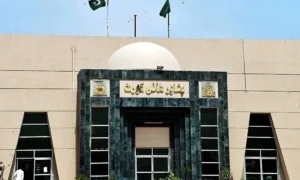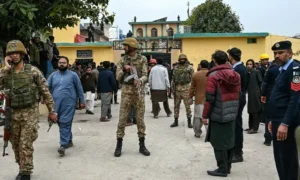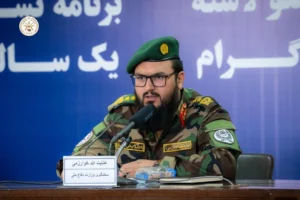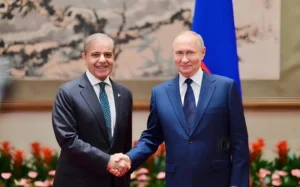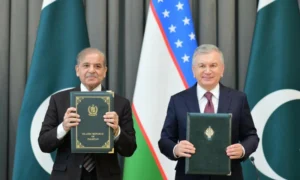Former U.S. diplomat Zalmay Khalilzad has mounted a desperate attempt to discredit Pakistan’s civil society-led peace efforts for Afghanistan. In his recent statements, he framed the academic dialogue “Towards Unity and Trust”, organized in Islamabad by the South Asian Strategic Stability Institute (SASSI) University, with the support of the Geneva-based World Forum for Afghanistan (WFA), as a covert plan against the Taliban.
Khalilzad went so far as to openly accuse Pakistan’s intelligence apparatus of backing the dialogue and described it as a provocation aimed at destabilizing Kabul. This narrative, amplified by certain Indian outlets, miscasts a civil society initiative as a hostile maneuver, despite SASSI’s repeated clarification of its purely academic character.
Ironic Accusations from Khalilzad
Observers note the irony in Khalilzad’s assertions. He accuses Pakistan of intelligence interference while himself having long been a part of Washington’s national security establishment. Khalilzad previously served as a director at the RAND Corporation, a think tank closely tied to the CIA and Pentagon policymaking. More significantly, he was appointed by President George W. Bush as U.S. envoy to Afghanistan during the early years of the “War on Terror” and later as U.S. ambassador to Iraq at the height of the Iraq War. Both appointments place him at the center of two of the darkest chapters of recent U.S. interventions, eras that destabilized entire regions and produced devastating consequences.
His later tenure as U.S. Special Representative for Afghanistan Reconciliation in the Doha peace process also remains controversial. Critics argue that his approach legitimized the Taliban while marginalizing other Afghan stakeholders, paving the way for the collapse of the former Afghan government and a chaotic U.S. withdrawal. Against this record, his accusations against Pakistan appear less credible and more a diversion from his own troubled legacy.
SASSI’s Firm Rebuttal
Dr. Maria Sultan, Director General of SASSI, categorically refuted Khalilzad’s claims. She stressed that the Islamabad dialogue was an open academic forum with diverse representation, not a state-backed conspiracy nor SASSI inviting “anti-Taliban” figures. She underscored that Pakistan’s civil society has consistently advocated peace in Afghanistan, reiterating her long-held stance that peace in Afghanistan is inseparable from peace in Pakistan. To underline transparency, Dr. Sultan extended an open invitation to Khalilzad himself to attend such dialogues, an offer that reflects Pakistan’s willingness to engage openly rather than operate in secrecy.
Muttaqi’s Remarks and the Ground Reality
Khalilzad’s allegations have also found resonance in comments made by Taliban Foreign Minister Amir Khan Muttaqi, who criticized Pakistan for hosting Afghan exiles and political figures in such forums. These remarks overlook a deeper contradiction: Afghanistan itself continues to serve as a base for groups engaged in violence against Pakistan. Organizations such as the banned Tehrik-e-Taliban Pakistan (TTP) and elements of the Balochistan Liberation Army (BLA) remain active from Afghan territory, raising serious concerns for Pakistan’s security. This reality complicates Muttaqi’s criticism and underscores the importance of dialogue-driven approaches that can address mutual grievances constructively rather than through blame-shifting.
The Regional Context: Trilateral Talks Ahead
Khalilzad and Muttaqi’s narrative also comes at a sensitive moment. On 20 August 2025, Kabul hosted a trilateral meeting of foreign ministers from Pakistan, China, and Afghanistan, the first of its kind under the current Afghan administration. Deputy Prime Minister and Foreign Minister Ishaq Dar joined China’s Wang Yi and Afghanistan’s Amir Khan Muttaqi to discuss counterterrorism cooperation and the possible extension of the China-Pakistan Economic Corridor (CPEC) into Afghanistan.
This diplomatic milestone underscores Pakistan’s proactive role in fostering regional stability and economic integration. Yet Khalilzad’s allegations, launched on the eve of this development, risked casting a shadow over substantive discussions and undermining trust at a critical juncture.
Civil Society’s Role in Peacebuilding
Against this backdrop, Pakistan’s facilitation of Track-II dialogues, such as the SASSI initiative, stands out as a constructive attempt to foster trust where formal diplomacy struggles. Such forums allow women’s rights advocates, community elders, journalists, and academics to address critical issues, from refugee repatriation to inclusive governance, without the rigidity of state-to-state negotiations.
A Call for Constructive Engagement
At a time when both state-level and civil society-level engagements are underway, attempts to politicize dialogue risk undermining fragile progress. Khalilzad’s misinformation campaign, echoed selectively by Afghan officials, does not serve the cause of stability. Instead of defaming such efforts, stakeholders should recognize the value of open dialogue in promoting peace. Pakistan’s civil society initiatives, backed by voices like Dr. Maria Sultan’s, remain focused on a simple yet vital principle: sustainable peace in Afghanistan is indispensable for achieving sustainable peace in Pakistan.


